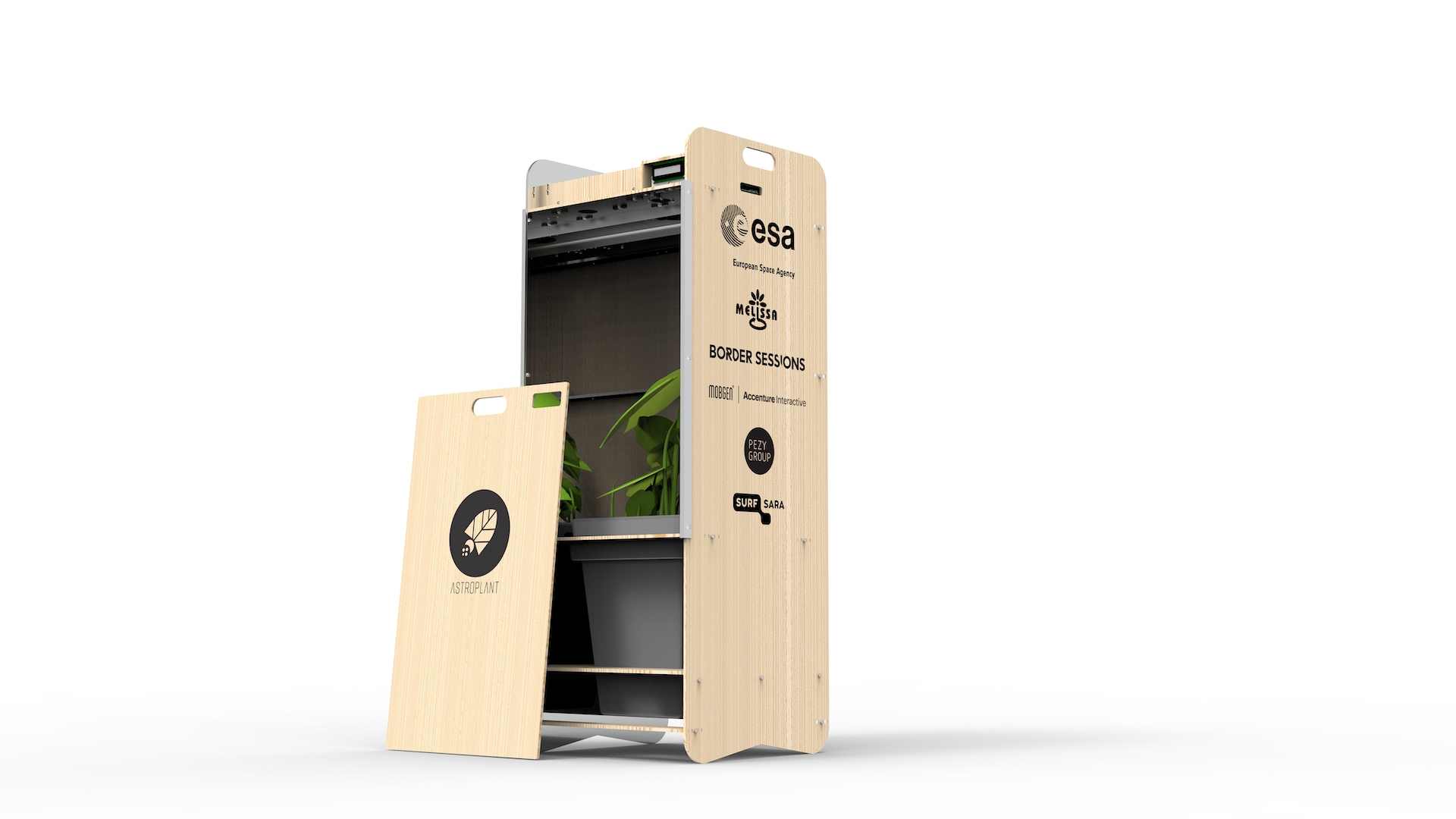For future human space exploration, food delivery will be an issue. Current space food products have a shorter shelf-life than the anticipated Mars mission duration [1] and limited alternatives to increase this shelf-life [2]. However, current technology development for plant growth during spaceflight is on its way [3,4], with a high potential to link food production and regenerative life support systems for overall higher sustainability [5]. A challenge of plant production in space is the lack of data on plant growth (for food or oxygen in regenerative life support systems like MELiSSA) due to the low number of ground facilities available to perform experiments. This results in limited predictability of plant growth and performance [5]. MELiSSA addresses this challenge through the development of structured mathematical models [6] and the validation of the mechanistic part of the model in state-of-the-art infrastructure [7]. However, while state-of-the-art infrastructure is a powerful tool, its use for the validation of the statistical part of the model is inefficient in terms of time and cost. Data generation on plant growth behaviour under varying environmental conditions can be accelerated by developing a simplified plant growth facility version and deploying a high number of them (i.e. a statistical approach). AstroPlant is a novel IT infrastructure and network of plant growth chambers that complements the existing state-of-the-art infrastructure, and proposes to address the validation of the statistical part of the mathematical model at lower cost and potentially faster and to support rapid testing and experimentation before moving an experiment to a highly controlled facility such as PACMAN. Additionally, AstroPlant is used as an educational tool from elementary to university level education. This proposal focuses predominantly on scientific validation and technical development of the AstroPlant architecture.

